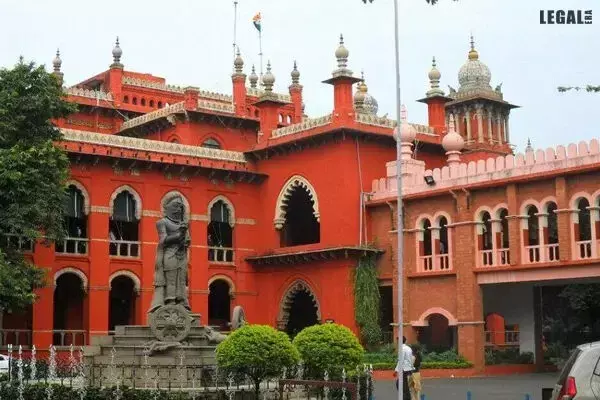Madras High Court Upholds Requirement to Produce Original Documents in Court; Dismisses Photocopies as Evidence
The Madras High Court has affirmed the position taken by the Trial Court in a trademark infringement case, ruling that;

Madras High Court Upholds Requirement to Produce Original Documents in Court; Dismisses Photocopies as Evidence
The Madras High Court has affirmed the position taken by the Trial Court in a trademark infringement case, ruling that the plaintiff failed to present the original documents corresponding to the submitted photocopies. According to Section 64 of the Indian Evidence Act, 1872, primary evidence must be provided to establish the authenticity of such documents. As the plaintiff did not provide a satisfactory explanation for not producing the original documents, the photocopies were deemed insufficient as evidence and were therefore not accepted.
The Division Bench, consisting of Chief Justice Sanjay V. Gangapurwala and Justice P.D. Audikesavalu, affirmed that there were no grounds to deviate from the findings of the Trial Judge as stated in the challenged judgment. As there was no error in the impugned judgment that required the Court's intervention, the appeal was deemed to lack merit and was consequently dismissed.
The plaintiff in this case asserted themselves as a prominent manufacturer of soap and detergent, having extensively marketed their washing soap under the trademark 'Super Wash - 555' since 1997. However, in 2012, the plaintiff discovered that the defendants had begun conducting business using an identical soap wrapper labelled 'Super Wash,' intending to mislead consumers into believing their products were associated with the plaintiff. Consequently, the plaintiff sought a permanent injunction to prohibit the defendants from infringing upon the plaintiff's trademarks 'Super Wash' and 'Super Wash - 555' on their soap wrappers or any other representation that resembled or deceived consumers into thinking it was connected to the plaintiff's trademark.
In response, the defendants contended that they had been producing handmade washing soap before the plaintiff and had established goodwill and reputation among the local public and customers. They emphasised that the words used on their soap were in the Malayalam language and were solely marketed within the territory of Kerala, without any distribution outside the state. The defendants argued that there were no similarities between the plaintiff's product and theirs, as the average consumer could easily distinguish the differences in the layout, colour combination, and font size used on the soap wrapper.
During the trial, the Trial Court noted that the defendants had raised objections to the plaintiff's submission of photocopies of the documents. It was observed that Rule 1 of Order XI of the Code of Civil Procedure, 1908, allowed the plaintiff to submit a list of all documents, along with their photocopies, at the time of filing the lawsuit.
“It is beyond any pale of doubt that such documents must be proved by primary evidence as stipulated in section 64 of Indian Evidence Act, 1872, at the trial in the suit. If it is intended by a party to prove a document by secondary evidence, the conditions mentioned in Section 65 of the Indian Evidence Act, 1872, would have to be strictly followed, which has not at all been carried out in this case.” the Trial Court observed.
The Trial Court held the opinion that the plaintiff failed to provide a satisfactory explanation as to why they did not present the original documents corresponding to the photocopies they had submitted. Consequently, the Court deemed the photocopies as inadmissible evidence in the lawsuit.
The Bench concurred with the Trial Court's perspective, underlining that it was evident that the plaintiff had made no attempts to produce the original documents corresponding to the submitted photocopies. In light of this, the Bench found no reason to deviate from the findings of the Trial Judge in the challenged judgment.
The Bench observed that the plaintiff had not alleged that the defendants were conducting business, manufacturing, or marketing their products within the jurisdiction of the Original Side of the Court. Consequently, the conditions specified in Clause 12 of the Letters Patent, 1865 were not fulfilled for filing the suit on the Original Side of the Court. The Bench further opined that Section 124 of the Trademarks Act, 1999 could not assist the plaintiff either, as no portion of the cause of action had arisen within the territorial jurisdiction of the Original Side of the Court.

